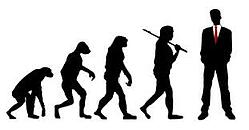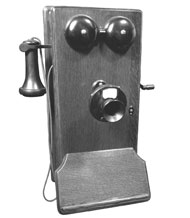1874 brought us the invention of the telephone.
75 years later, computers emerged.
And, in the last 20 years, we've brought the internet into our lives.
With these milestones in communication, we've seen incredible evolution in the ways we access information, share it, and interact with each other.
As technology continues to accelerate, and as organizations strive to grow and keep up with the associated changes, a new dynamic presents itself with organizations’ most prevalent resource: people.
HR Redefined
 Consider the accessibility to information that is now in the hands of our employees. As well, keep in mind the changes in connectivity with competitors, the transparency between vendors, and the blur in lines between personal and professional networks.
Consider the accessibility to information that is now in the hands of our employees. As well, keep in mind the changes in connectivity with competitors, the transparency between vendors, and the blur in lines between personal and professional networks.
This acceleration in communication is just one of many factors that has made us realize the changes that are required to realign how we do business, as well as how we attract, manage and retain our teams. As a result, the role of HR in organizations has changed dramatically over the years.
Roles & Responsibilities in HR
New graduates beginning their careers in the HR field today will find their job descriptions to be significantly different from those who took on the same position as little as a decade ago. Traditionally, the role of HR was primarily administrative in nature, serving as the process-oriented arm of executive management. Today, we have seen a shift in responsibility and a focus on HR as a strategic element to an organization’s competitiveness. Through this evolution, the role of an HR professional now encompasses three additional core responsibilities:
1) Strategic Business Planning
The primary role of an HR Manager is to ensure that employees are being utilized in a way that aligns with the organization’s goals. Clearly communicating your vision with your team and finding employees that will align themselves with that vision will allow you to maximize your organization’s capacity.
Eye on Talent: An HR professional must possess excellent strategic thinking skills and the ability to see the big picture, while paying close attention to detail.
2) Organizational Change Facilitation
HR's role is to ensure that employees are equipped with the skills and information needed to successfully adapt to change with minimum disruption. Properly empowering your team will transform resistance into leadership with your people acting as your strongest change facilitators helping you to achieve this desired change.
Eye on Talent: An HR professional must possess the ability to clearly link change to the strategic needs of the business and communicate the benefits of that change.
3) Employee Advocacy
A major element of HR is ensuring that employees are succeeding with the organization. HR plays a fundamental role in understanding the unique aspirations of individual employees and uses that information to create environments that enhance their productivity. Implementing a Performance Review Program to give feedback, recognize employee successes and identify opportunities for personal growth is now an essential, ongoing task for organizations
Eye on Talent: An HR professional should possess exceptional interpersonal communication skills and a strong ability to give constructive feedback to employees.
Source: The Evolution of HR: Developing HR as an Internal Consulting Organization, by Richard M. Vosburgh
The role of HR is forever changing as the business world continues to evolve, and as organizations discover new issues of importance. With the increased emphasis on employee engagement, organizations are recognizing the importance of facilitating communication between their teams.
To learn more about developing your own comprehensive HR strategy - Access TPD's HR Cycle E-Book below!
Filed under Expert Series, HR Trends

.png?width=2400&name=HQ%20TPD%20careers%20hero%20(1).png)




